CONTACT
We will reply as soon as possible.
Enevia Health, LLC
30 N Gould Ste N, Sheridan, WY 82801, USA
Font: https://clinicaterapeutica.it/ojs/index.php/1/article/view/797/572
The leguminous tree known as carob/algarrobo (Ceratonia siliqua L.) It is native to the Mediterranean area and over the centuries its pods have traditionally been used mainly as animal feed.

However, it has gained great attention in human nutrition due to the molecular compounds it contains, which could offer many potential health benefits.
For example, carob is known for its high content of:
Furthermore, in traditional medicine it is credited with the ability to control glucose metabolism and the intestinal microbiome.
Modern science has also widely recognized the numerous health benefits derived from its consumption, including its antidiabetic, anti-inflammatory and antioxidant properties.
Due to its abundant content of pectin, rubber bands and polyphenols (like pinitol), carob has attracted much attention as a well-researched plant with notable therapeutic properties. In particular, carob is widely used in the production of semi-finished pastry products, particularly in ice cream and other creams (especially as a substitute for cocoa/chocolate).
These applications actually facilitate the exploration of its positive effects on glucose metabolism. The study aimed to examine the effects of carob extract on intestinal microbiota and glucose metabolism.
A comprehensive review, comprising in vitro, in vivo and clinical trials, was carried out to evaluate the human health consequences of polyphenols and pectin from different carob species, including those recently discovered with high polyphenol contents.
The goal was to learn more about the mechanisms through which carob extract can promote balanced intestinal flora and improve glucose metabolism. The results could influence the creation of new functional foods and dietary supplements to help in the treatment and prevention of chronic diseases such as diabetes and obesity.
The carob is a perennial plant of the legume family, which usually measures between 8 and 16 meters high, with strong branches and a thick trunk.
Widely distributed in various regions of the mediterranean basin, carob thrives even in conditions of high salinity and drought; In addition, its deep roots facilitate the absorption of carbon dioxide, so it is also beneficial for the environment.

Traditionally, as mentioned above, carob beans were excluded from the human diet and used mainly as animal feed; However, carob fruits and/or pods are now used to create multiple foods and beverages, as well as many other products, such as bakery products, pastas, milk alternatives, etc., progressively incorporate carob pods.
It is commonly processed to obtain powder, flour and syrup, which are used in the production of sweets, as well as in chocolate or cocoa alternatives.
The main yield of this tree is the carob pod, also known as “carob”, which serves as an edible bean. Made with a 90% of pulp and a 10% of seeds, the pod has an elongated shape, with variable lengths and an outer surface covered in brown.
The pulp can be divided into two parts: the rough outer layer, called the pericarp, and the smooth inner layer, known as the mesocarp. Carob leaves have a thick epidermis, rich in phenolic compounds.
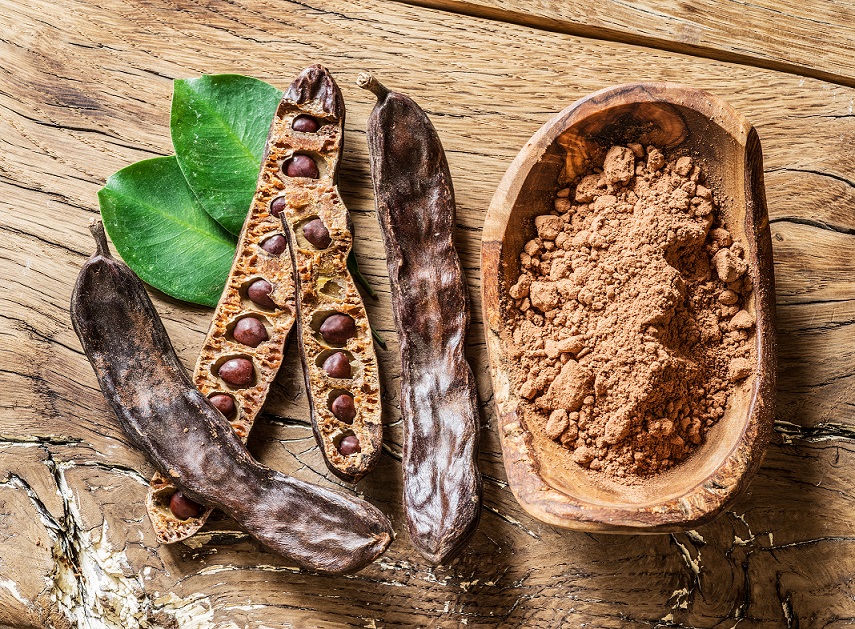
Carob pod naturally contains high sugar content (about 45 to 55%), which is composed as follows: more than 90% of sucrose, 2 to the 4% of glucose and a minimal amount of fructose.
It also contains negligible amounts of fat and its protein content is around 7%. Carob pods are rich in insoluble fibers (cellulose, hemicellulose, lignin) that help counteract high glucose levels.
They also contain phenolic compounds, such as phenolic acid, flavonoids and gallotannins, with cholesterol-lowering effects, which are beneficial for controlling diabetes.
Carob pods also provide vitamins and minerals (such as calcium, potassium, magnesium and phosphorus). Carob seeds contain several phenolic chemicals, including flavonols and tannins.
Pectin, a heteropolysaccharide found in the cell walls of land plants, is found abundantly in carob beans. It is mainly composed of galacturonic acid, a natural sugar that is derived from galactose.

Pectin has been shown to improve lipid oxidation and cholesterol metabolism; It has also been found to reduce postprandial acylated ghrelin.
Pectin supplementation improves glucose tolerance and alters the response of postprandial blood glucose levels.
To extract crucial nutrients from carob pods, they are first dried to reduce moisture.
Subsequently, the pulp and seeds are separated. The pulp, which is rich in sugar, fiber and antioxidants can be used for industrial food production, generally following this process:
To produce carob syrup, the ground pulp is soaked in water, drained and finally boiled.
Carob pods are a good source of fiber, calcium and other nutrients. They can be consumed raw, roasted or powdered; Carob powder can be used in recipes in place of cocoa powder, or mixed into yogurt, muesli, or smoothies.
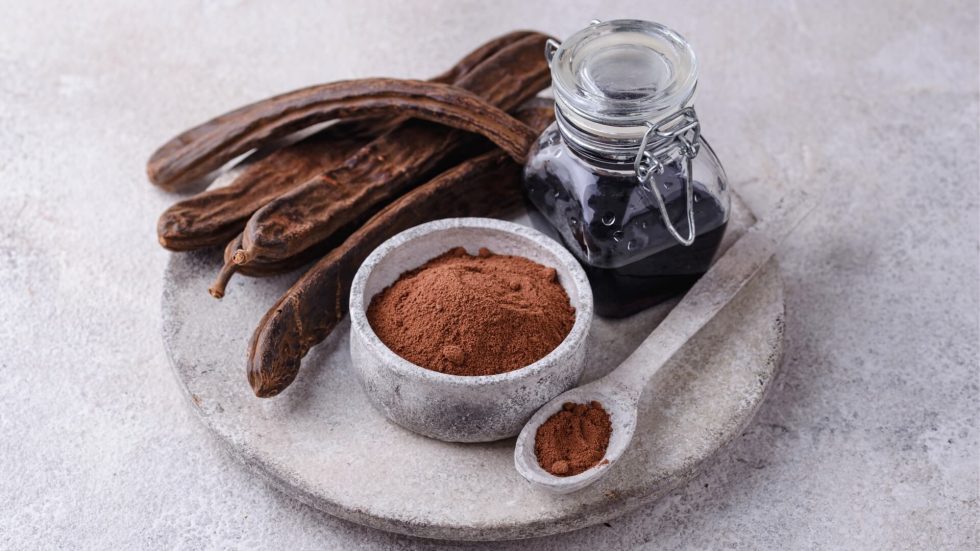
On top of that, carob pods contain abundant amounts of plant chemicals known as polyphenols. (such as tannins, flavonoids and phenolic acids), which are famous for their anti-inflammatory and antioxidant qualities.
Researchers have shown that consuming polyphenols from carob pods produces a wide range of health benefits, such as reducing the risk of:
The antioxidant properties of polyphenols and their ability to curb chronic diseases have been the subject of extensive research, according to which polyphenols in carob extracts play a role in several signaling pathways that may be beneficial for human health.
The polyphenols in carob pods have powerful anti-free radical properties, which help counteract damage caused by oxidative stress and protect cells from injury.
An interesting polyphenol derived from carob is pinitol, which can be obtained by following a simple protocol: A dilution of carob.
This is prepared to eliminate the components of glucose by cultivating microorganisms; The microbial cells are then removed by filtration or centrifugation. The pinitol is then separated using a column of concentrated activated carbon to form crystals.
Mass spectrometry allows the quantification of pinitol in carob syrup. Additionally, carob polyphenols have shown promising anti-inflammatory benefits.
They have the power to control inflammatory pathways and prevent the body from producing pro-inflammatory chemicals. This anti-inflammatory property increases the carob pod's potential to reduce inflammation and improve overall health.
Additionally, polyphenols from carob pods were shown to possess antibacterial characteristics, making them useful in preventing the growth of specific bacterial strains and promoting a balanced intestinal flora.
Carob pods contain the natural substance D-pinitol; In fact, carob is the only commercially viable source of this molecule.
It is a new nutritional supplement that shows promise in improving general health and well-being, thanks to its variety of beneficial effects on the health of the body, including properties anti-inflammatory, antioxidants and hypolipidemic, which makes it a safe and efficient substance.
It can be acquired both from carob pods and as a food supplement.
It has been shown to have antidiabetic, anti-inflammatory and antioxidant properties.
The diseases cardiac, he cancer and the Alzheimer disease These are just some of the chronic diseases that the properties of D-pinitol can help prevent.
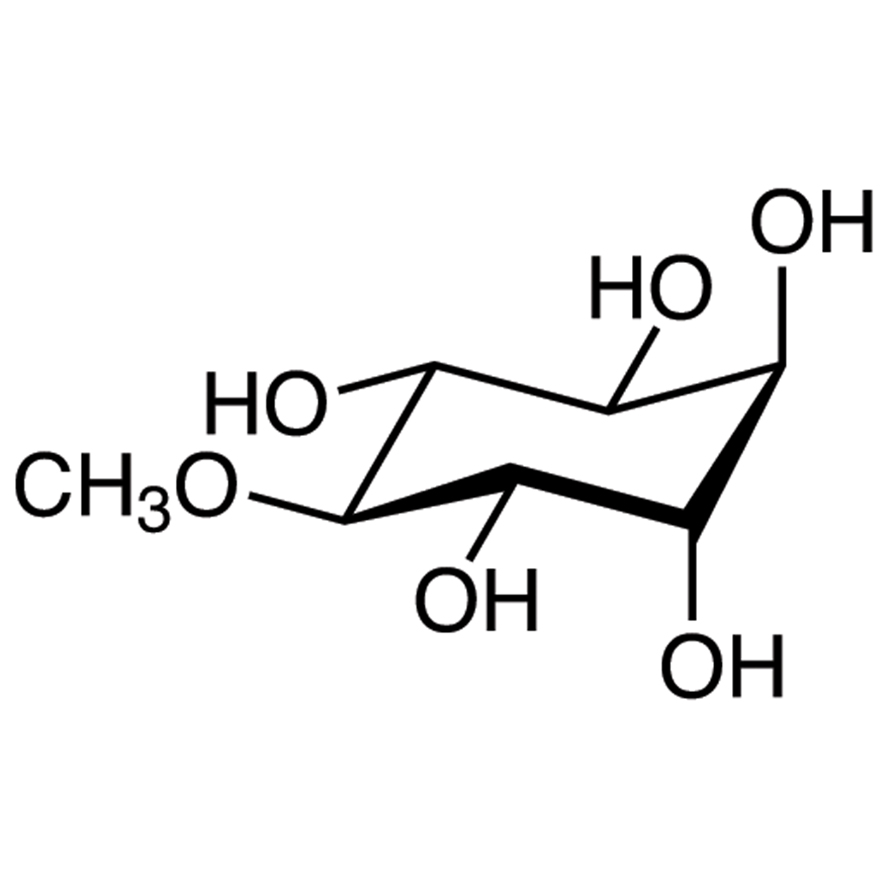
D-pinitol is a form of phytosterol, which makes up a group of substances of plant origin with structures similar to those of cholesterol. In this way, they prevent the absorption of cholesterol in the stomach, helping to reduce blood cholesterol levels.
It is one of the best phytosterols to reduce cholesterol levels; In addition, it also has insulin-mimicking effects by independently reducing glucose levels.
D-pinitol improves glucose transporter 4 function (GLUT4), responsible for the transport of glucose to adipose tissues and muscles and regulated through the signaling pathway PI3K/Akt.
Research has been conducted indicating that D-pinitol acts as an antioxidant compound with the ability to scavenge free radicals, thereby reducing oxidative stress associated with many health conditions.
Studies have also revealed the potential of D-pinitol to inhibit cancer progression, both in vivo and in vitro. Experimental findings have also shown that the nuclear factor kappa B pathway can be blocked by D-pinitol, which serves as an operative method to inhibit tumor necrosis factor-induced cell invasion. (TNF) and negative regulatory genes that play a role in increasing tumor metastasis.
Furthermore, studies have shown that it contains antioxidant characteristics that can effectively eliminate free radicals and reduce oxidative stress in the body.
D-pinitol can help in the prevention and treatment of numerous diseases related to cellular damage by reducing oxidative stress, and shows activity in protecting the liver and can also protect pancreatic tissue from oxidative stress.
Finally, it has been shown that the D-pinitol can reduce the activity of inflammatory cytokines, such as TNF-a (19). It may also function by suppressing the activities of the immune system by regulating the balance of cytokines Th1/Th2.
Carob pod polyphenols were revealed to play a role in preventing adipocyte differentiation by controlling C/EBPB at the post-transcriptional level.
These polyphenols also exhibit the ability to reduce the activity of α-glucosidase.
Furthermore, in vitro tests on mature adipocytes 3T3-L1 have shown that the polyphenols in carob pods also have anti-inflammatory effects.

In vitro studies found that polyphenols from carob pods also have antioxidant capabilities.
An experimental study showed that carob extract supplementation helped weight loss by reducing plasma IL-6 levels and increasing adiponectin levels in mice.
The post-transcriptional control of C/EBPB allowed polyphenols from carob pods to prevent adipocyte differentiation.
They also showed the ability to reduce α-glucosidase activity in vitro.
Other studies showed that carob pod polyphenols prevented an increase in adipose tissue weight in mice with diet-induced obesity and supplementation with carob pod extract improved glucose tolerance and reduced glucose levels in mice; Furthermore, carob leaf extract infusion mitigated inflammation by reducing the levels of pro-inflammatory cytokines in obese mice.
For example, carob fruit extract was administered to rats with type 2 diabetes, which led to a notable improvement in the dysbiosis of their gut microbiota.
The extract was found to reduce blood glucose levels in rats, indicating its potential to treat hyperglycemic conditions.
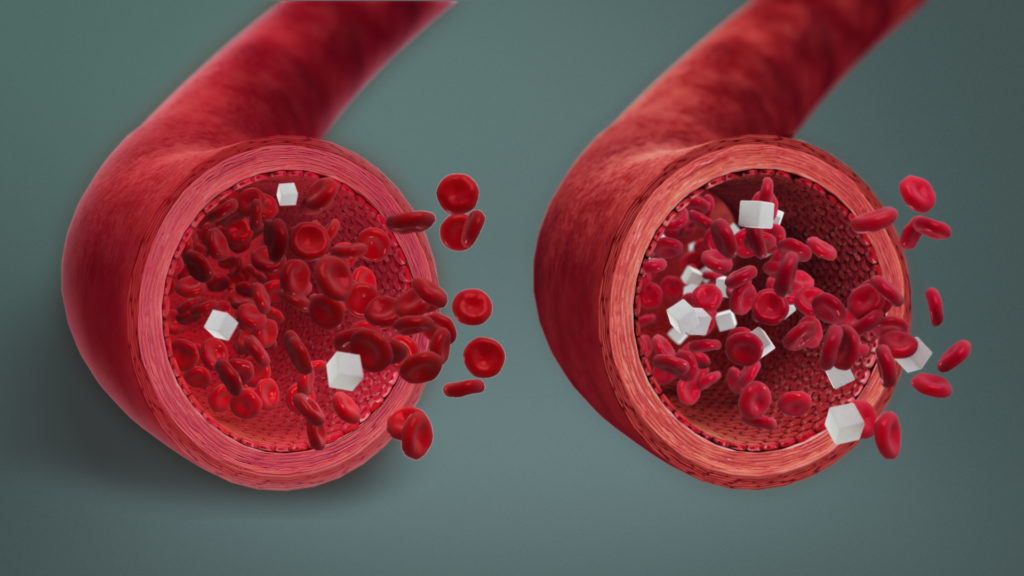
Other studies show that histological sections of the pancreas of diabetic rats that received carob extracts showed the least damage of α cells compared to diabetics. controls, and that carob powder-based snacks exhibited an antihypertensive effect in rats with metabolic syndrome, effectively addressing complications associated with metabolic syndrome.
Numerous studies have been conducted in humans to examine the effects of polyphenols in carob pods. (CPP).
These compounds may help people with hypertension lower their blood pressure and may also help improve the ability of patients with type 2 diabetes to control their blood. sugar.
Furthermore, it has also been shown that CPP They have antioxidant and anti-inflammatory properties. The potential of CPP to control blood glucose levels and diabetes is another interesting area of research in humans.
According to research, the antidiabetic effects of these polyphenols could be due to the fact that they modify insulin sensitivity and glucose metabolism.
In clinical trials, CPPs have been shown to promote overall glycemic control, reduce insulin resistance, and improve postprandial blood glucose control in people with diabetes or glucose intolerance.
Also, research on the benefits of carob pod polyphenols for digestive health has yielded results. Encouraging results.
According to research in humans, these polyphenols have prebiotic qualities that promote the development of good intestinal bacteria and regulate the composition of the intestinal microbiota.
Finally, it has been shown that CPP They have anti-inflammatory properties in the digestive system, which can help reduce symptoms of gastrointestinal diseases and promote overall intestinal health.
In conclusion, the systematic review and meta-analysis focused on the effects of carob extract on the gut microbiome and glucose metabolism.
Carob extract was shown to have beneficial effects on the gut microbiome and the glucose metabolism in both in vitro and in vivo studies. Through the study, the main physiological activity of carob and its role in human health has been summarized.
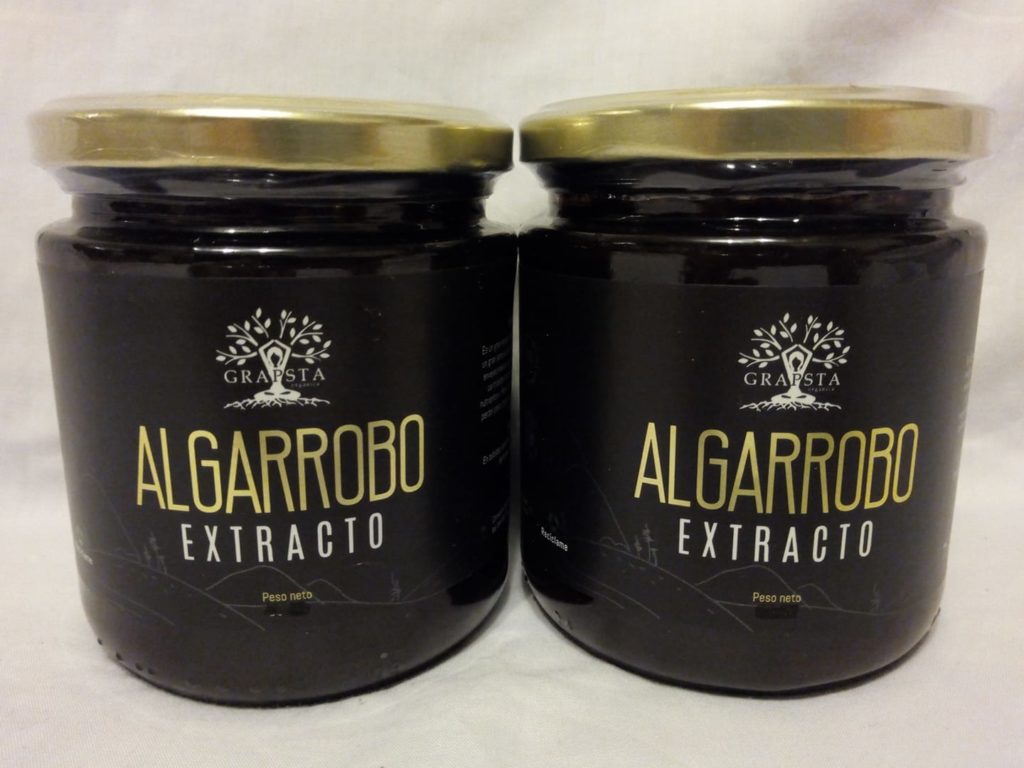
Carob extract, rich in pectin, gums and polyphenols such as D-pinitol, has demonstrated antidiabetic, anti-inflammatory and antioxidant properties. It shows the potential to promote the balance of intestinal flora, improve glucose metabolism and help in the treatment and prevention of chronic diseases such as diabetes and obesity.
These findings highlight the importance of carob as a potential source for the development of functional foods and dietary supplements with therapeutic properties.
And you, did you know the benefits of carob? We invite you to read the other articles on our blog, in www.eneviahealth.com/blog , there you will find relevant information on different health topics, news and innovations.
We will reply as soon as possible.
30 N Gould Ste N, Sheridan, WY 82801, USA
Our groups are the ideal platform to learn and share your scientific concerns about neurodevelopment issues
*Our purpose is informational only, it is not intended to be a substitute for medical advice, diagnosis or treatment.
We are working on our website. For any queries, you can contact our customer service team at atencionalcliente@eneviahealth.com